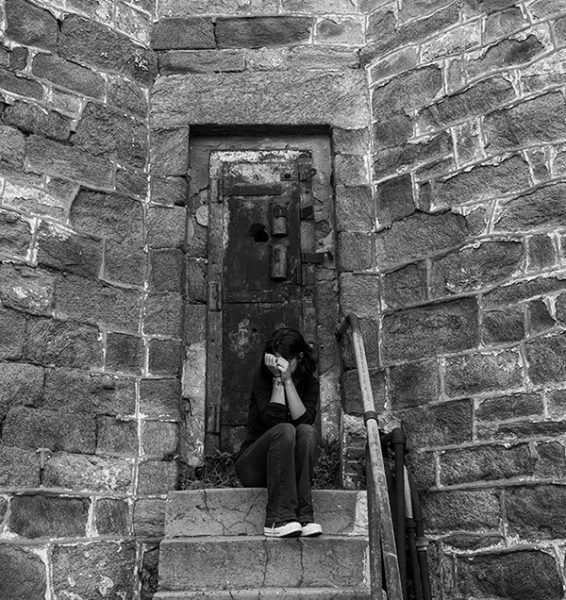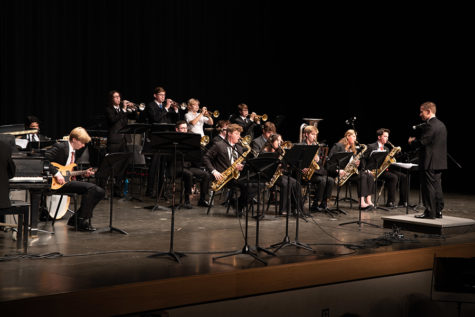Abortion, Autonomy, and Roe v. Wade
December 12, 2021
As long as women have been getting pregnant, women have been getting abortions. The Sanskrit wrote that a fetus could be induced by sitting over a pot of stewed onions. During the Edo period in Japan, women nationwide received abortions due to economic status. Even the Greeks had their methods of terminating pregnancies, containing a variety of herbs and plants that were said to eliminate the fetus.
In the modern era, abortion, like all things, is a polarized issue. On one end, there are women that identify as “pro-life,” meaning that they believe that life begins at conception, and thus, abortion is murder. Opposite them sits the “pro-choice” group, believing that life does not begin until birth (or, in some cases, the third trimester), and thus, abortion is not murder, or that it is not a murder worthy of punishment.
These two camps simplify an issue that is incredibly complicated. I believe that, like all things, abortion cannot be considered black and white, as it comes in a variety of grays. Like every woman has (or will), I have had friends and family get pregnant. I held my baby brother hours after he was firstborn, and I understood then that life is sacred. I’m not sure if I believe in a God, but whatever Higher Power there is, surely it is good because there are things that are precious and born without sin or hurt. I’ve held my cousins, bounced them on my hip, and sometimes, it keeps me up at night that there are children raised without the love they deserve. Yes, life must be sacred, because I’ve seen it freshly created, and I’ve seen the wounds stitched after it’s been lost.
But I was fourteen when one of my friends first worried she was pregnant, and we had to go through the symptoms and determine if she was just missing a period or if we had to bike to the nearest Planned Parenthood. I’ve sat outside the bathroom while friends took pregnancy tests, praying to Mother Mary for that single stripe, which thankfully, we saw. The decision to terminate or pursue a pregnancy is a god-awful one, but it’s one that a lot of women must make. Pregnancy isn’t in the cards for most teenage girls due to economic reasons as well as personal circumstances. Even those that are economically set to have a baby may simply not want one.
The attacks on Roe v. Wade, however, should scare everyone. Roe v. Wade is one of several rulings in the court related to abortion and is considered the case that legalized abortion throughout all 50 states. Mississippi’s attack and attempt to ban abortion after fifteen weeks is worrying. Constitutionally, abortion is legal up until the end of the second trimester; while some states have pushed this, none have gone so far as to push back to 15 weeks and then fight for this limitation in a variety of courts, all the way up to the Supreme Court.
With a conservative lean, SCOTUS is widely predicted to overturn Roe v. Wade with their ruling in this case. Roe v. Wade rules that abortion is a personal and private choice for women to make; once it is reversed, choices on abortion will be left up to the states. For states like Texas and Mississippi, this will make women in certain states entirely unable to receive the procedure, taking a medical decision out of their hands. This law in particular is another step to a total loss of female autonomy. As women, it is already difficult to be medically autonomous. Doctors will demand to speak to a boyfriend or husband before girls go on birth control, put in the husband stitch without asking permission, and dismiss symptoms of serious ailments.
It’s no secret that gender bias and sexism exist throughout the medical industry. In 2019, it was found that in 75% of cases, women’s diagnoses came after a longer wait than men’s diagnoses. Men in pain are “brave,” women are hysterical. The majority of medical studies before the 1990s were only run on men, meaning that they are fairly inaccurate due to the fact that sex determines how people’s bodies are affected by physiology, symptoms, disease, and treatment. In a world that constantly tries to take power away from women, it is more important than ever that we fight for it.
Wherever you fall with your beliefs about abortion, bodily autonomy, and healthcare rights absolutely cannot be denied, nor can we allow them to go peacefully. Mississippi’s attempt to criminalize abortion rescues fetuses, but it endangers your daughters, sisters, and friends, 1 in 4 of which will receive an abortion in their lifetimes. Throughout history, every time abortion has been criminalized, women have found a way to terminate pregnancies using dangerous methods such as physical beating and the infamous bent coat wire. We must maintain its legality in order to protect the women that receive the procedure.







